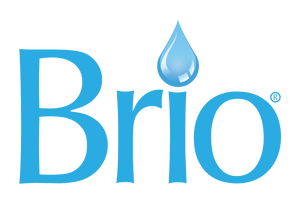The Best Hydration Drinks: Quick Facts
Whether you’re an athlete, an office worker, or a busy parent, staying hydrated is an essential part of daily life. Water is an obvious choice when you’re thirsty or want to keep yourself “topped up” so you feel your best. Yet many people reach for their favorite brand of sports drink instead of water, usually due to the many benefits boasted about on product labels.
Let’s take a closer look at water vs. sports drinks for hydration to determine which is actually better.
Why Hydration Matters

Staying hydrated is as important as eating and sleeping well. At least 60% of your body is composed of water. Without regular fluid intake, your body can’t properly regulate its temperature. Other effects of dehydration include a dry mouth, dizziness or disorientation, fatigue, and dark or odorous urine. You may also start to notice a persistent headache if you haven’t had any fluids for a few hours.
Any of these symptoms should prompt you to reach for some water or an alternative. However, if you have more severe symptoms like confusion or a weak heart rate, seek medical help immediately.
What's in a Typical Sports Drink?

Instead of water, many people enjoy colorful, flavored sports drinks. All brands are slightly different, but here are some of the ingredients you may find in them:
• Carbohydrates, usually in the form of sugars like glucose and fructose
• Sweeteners like aspartame or stevia
• Electrolytes — minerals like sodium and potassium that are often lost via sweating during exercise
• Vitamins
• Caffeine
• Taurine
• Water
• Additives like coloring and preservatives
Many of these ingredients are highly beneficial in small amounts, particularly if you’re exercising vigorously. The ability to boost your body’s vitamin and mineral levels while engaging in physical activity could improve athletic performance.
It’s important to realize, though, that you cannot rely on sports drinks all day long. You would consume far more than the recommended daily amounts of sugar and some micronutrients. It’s always worth checking any sports drink’s list of ingredients to ensure you don’t have sensitivities to any of them.
Pros and Cons of Water vs. Sports Drinks

Water
Pros:
• Available right from your faucet
• Free from additives or allergens
• Naturally hydrating
• Inexpensive
• Okay to drink at any point during the day
Cons:
• Flavorless — although for some people, this is a “pro”
• No added benefits beyond hydration
Sports Drinks

Pros:
• Can improve athletic performance during vigorous exercise
• Available in many flavors
• May include beneficial vitamins and minerals
Cons:
• May not be suitable for someone on a low-carb diet (versions containing sugar)
• May not be suitable for diabetic people — check with your physician first
• Unsuitable for all-day drinking due to the concentration of sugars, sweeteners, and other additives
• Some people may have sensitivities to the ingredients
It’s easy to see that water is the clear winner for everyday drinking. Medical texts confirm that water is one of the most important nutrients, recommending that adults drink between 2.7 liters and 3.7 liters every day, depending on their age, sex, and the weather. When the sun is out, drink more to avoid the negative effects of dehydration.
Keep Cool, Clean, Refreshing Water on Hand

You can make your water an even healthier choice by investing in water filtration systems that remove potentially harmful contaminants. Multi-stage filters use sediment filters and different grades of carbon to remove particles and microorganisms that impact the odor, flavor, and even the safety of your home’s water. Consider a whole-house filtration system that retains beneficial minerals, prioritizing the health of your family while providing clean water all year round.
For serious athletes, sports drinks are a great way to hydrate during and after intense exercise. Throughout the rest of the day — and for everyone else — pure water is always the best choice for regular hydration.





Leave a comment